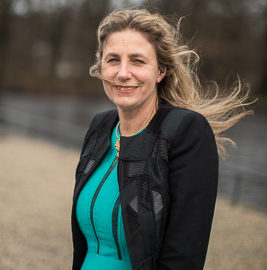By
In May this year the Netherlands Central Bureau for Statistics brings out its Monitor Broader Wellbeing for the second time. No longer Gross National Product (GNP) is the sole leader of the wellbeing discussions. It is the outcome of the advice of the Parliamentary Commission on Broader Wellbeing. This Commission got its inspiration from the report commissioned by French President Sarkozy (Stiglitz et al. 2009), but above all from a small country in the Global South: Bhutan. This is where the Green Left Party got its idea for a call for Gross National Happiness as a measurement of the functioning of society (2010).
The word Happiness leads to a lot of confusion (van Norren 2017). How do you measure happiness? Moreover, isn’t Bhutan ranked very low in the World Happiness Report? (Number 97 of 156 in 2018). A Japanese researcher told me that the way happiness (subjective wellbeing) is measured in international rankings is misleading. A Buddhist is more likely to fill in a score of 5 as ideal (median between 0 and 10), a Westener judges this score to be insufficient.
In Buddhism happiness has a different connotation that in the West. It is about balance and harmony. In the first place, inner harmony, then a harmonious society and finally harmony with nature. The term Gross National Harmony would be a better translation of the policies of the Bhutanese government, which are based on four pillars: culture as the basis of your identity, social and economic progress, good governance and harmony with nature. Bhutan uses an index that is composed of nine domains with unusual indicators such as: the balance between work and sleep; community vitality (for example the time and money people donate); psychological wellbeing (such as positive and negative emotions); and culture (such as the degree of cultural participation).
Not only Bhutan (and other countries in Asia such as Thailand) is active on different concepts of wellbeing. In Latin America countries like Ecuador and Bolivia are clamoring for harmony with nature and respect of Mother Earth. These countries decided to include Buen Vivir (Good Living) in their constitutions. This is based on indigenous wisdom and a bio-centric worldview. Human beings are not above creation, but all living beings are equal. The regenerative principles of Mother Earth would have to be leading for the conception of the law and the economy. This lead to inclusion of the rights of nature in their constitutions. In the Dutch Monitor Broader Wellbeing a dashboard is included not only on ‘here and now’, but also on ‘overthere’, meaning our use of resources in other parts of the world.
In Africa wellbeing is mainly defined as good human relations (rather than the measurement of income). Humanity is defined differently than in Europe. People speak of Ubuntu (I am because we are). As an individual I exist because of the community. This community automatically includes the ancestors and the future generations. Ancestors are considered ‘living dead’ as long as they are remembered and they are connected to the earth. For the ‘yet to be born’ natural resources are equally essential. In the South African constitution they are therefore explicitly mentioned. The Dutch Monitor Broader Wellbeing also includes a ‘Later’ dashboard on future resources for the coming generations.
How ‘development’ is defined is therefore different in every culture. GNP was easy to measure. Broader wellbeing opens a different debate. Traditions in the Global South prioritize culture, inner wellbeing, human relations and nature. How you view wellbeing depends on what you measure. And not all cultures share the Dutch proverb: knowing is measuring.

About the author:
Literature
Norren, D.E. van (2017). Development as service: A Happiness, Ubuntu and Buen Vivir interdisciplinary view of the sustainable development goals. Proefschrift, Tilburg University.
Stiglitz, J., A. Sen, en J. Fitoussi (2009). Report by the Commission on the measurement of economic performance and social progress.



